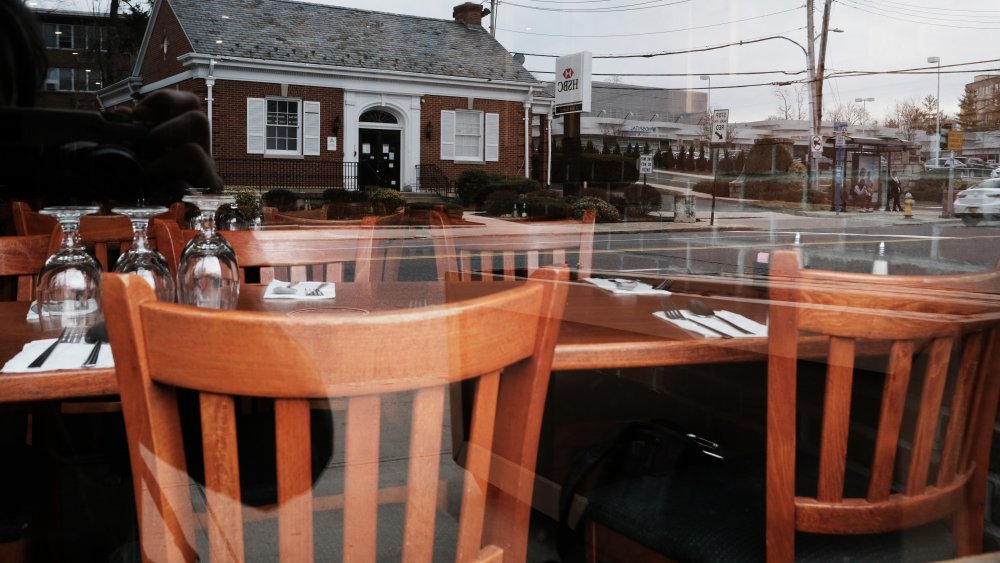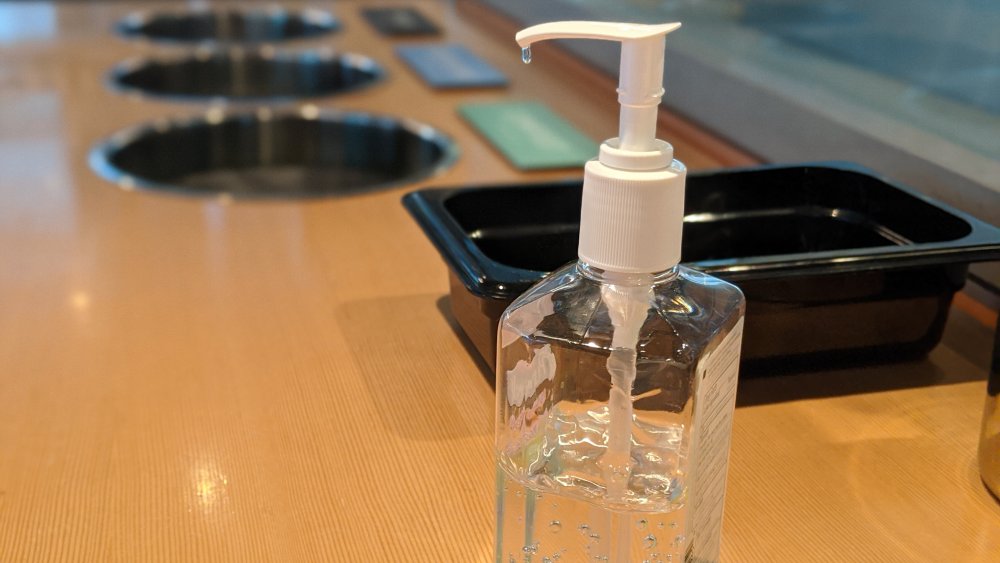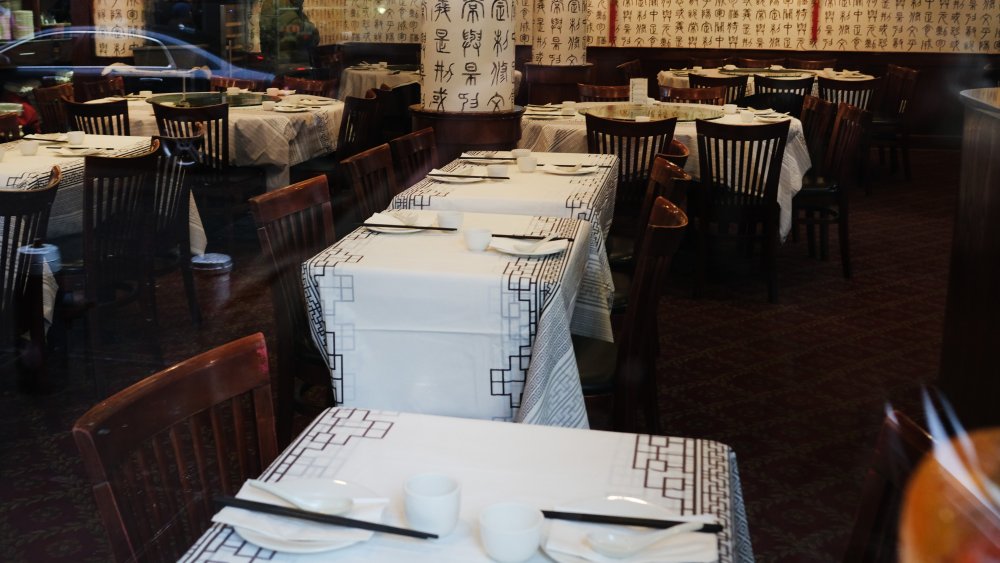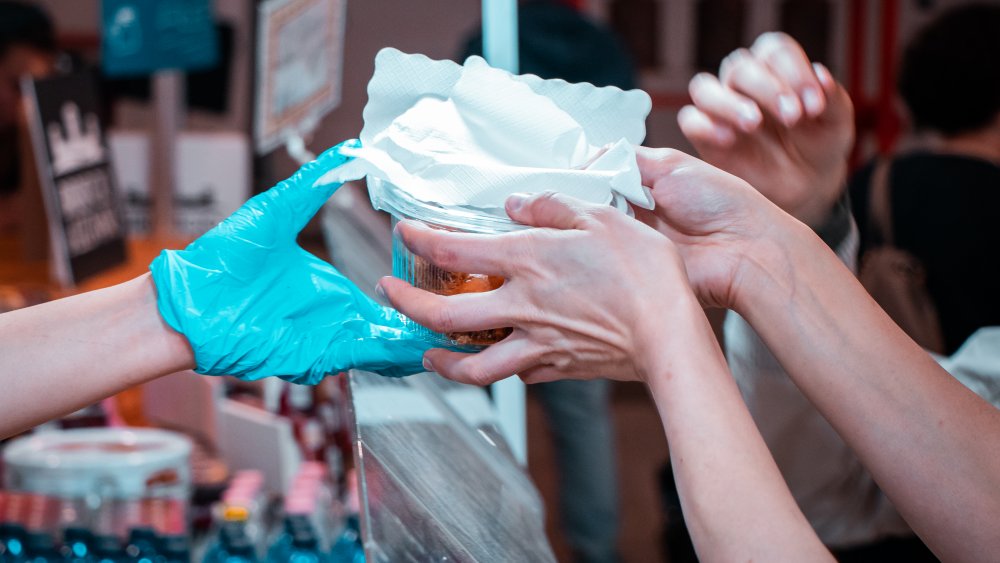How To Safely Dine Out During The Coronavirus Outbreak
While we're all in the early days of carrying out personal social distancing policies to protect ourselves from the COVID-19 coronavirus, there will come a time when we'll need a break from our own cooking. And while venturing out does carry a certain amount of risk, it pays to know that restaurants and dining establishments have been working hard to make sure they don't lose any loyal customers.
The concern felt by restaurant owners and chefs that their businesses will be hurt by social distancing is real. As Food & Wine editor Kat Kinsman recently tweeted, "I've spent the day talking to chefs and restaurateurs and everyone is terrified that they'll have to close down permanently. If you want these places to still be there later, if you possibly can afford it, go and support them now, or buy gift certificates for later."
Restaurants have hygiene protocols in place due to COVID-19
Food & Wine says new safety procedures at dining establishments include reducing the number of seats at to improve social distancing, providing copious amounts of hand sanitizer, and removing all shared elements of a restaurant from caddies to silverware holders. Servers and those preparing meals are also required to wear gloves at all times.
"The bottom line is that the public is being asked to lean forward and be prepared for what the next problem might be. You are asked to anticipate the worst case scenario and prepare accordingly. But what we also have found is that when people are better prepared and take these steps needed, they feel better and less uncertain and don't feel as unsettled," Robert Amler, a medical doctor and a former CDC Chief Medical Officer says.
There is no reason to avoid restaurants during the coronavirus outbreak
For now, health experts say there is no reason to stay home and eat in, particularly if you feel your cooking skills aren't up to scratch. Eater reminds us that there is currently no guidance from the Centers for Disease Control with regard to eating out. But it is important to assess your own health condition so you are aware of any risk you may pose to yourself and others.
"First, if you are sick or starting to feel respiratory symptoms like coughing or sneezing, you should avoid dining out. You do not want to transmit a possible infection to other people, and you will be more susceptible to possible infections as your immune system is already busy fighting your current illness," DC-based assistant professor of medicine Michael Knight tells Eater.
You would also do well to avoid crowded restaurants or peak times to reduce the potential risk of exposure; avoid taking food from an open buffet; and avoid sharing dishes to reduce the risk of passing on something you may not know you had. If you're uncomfortable with the way other people clean your table, you can bring your own sanitizer wipes and wipe down your table yourself.
Restaurants need to innovate in time of the coronavirus
The New Jersey Monthly says restaurant owners are also adapting to the realities of operating in an infected society because as restaurant chef Seth Warshaw puts it, "If anything happens to the economy, or something crazy like this, we're the first thing people cut out." Some restaurants have begun implementing takeout and delivery systems in order to keep their clients, and it may be worth asking your favorite restaurants if they offer the service so you don't have to eat out in order to enjoy someone else's cooking.
"[We'll] push the takeout thing, change our model from an eat-in, experiential type of place. We're going to do what we have to do to survive. If that means making hamburgers or something, that's fine. Not that there's anything wrong with that! But yeah, we're going to have to tweak the DNA of the place. If everybody's in quarantine or kids' schools are closed, the first thought isn't, 'Hey, let's go out for our anniversary.' But people need dinner, and some supermarkets are empty. People need to eat; I need to feed my family — hopefully we can all work together to make that happen," Warshaw says.



